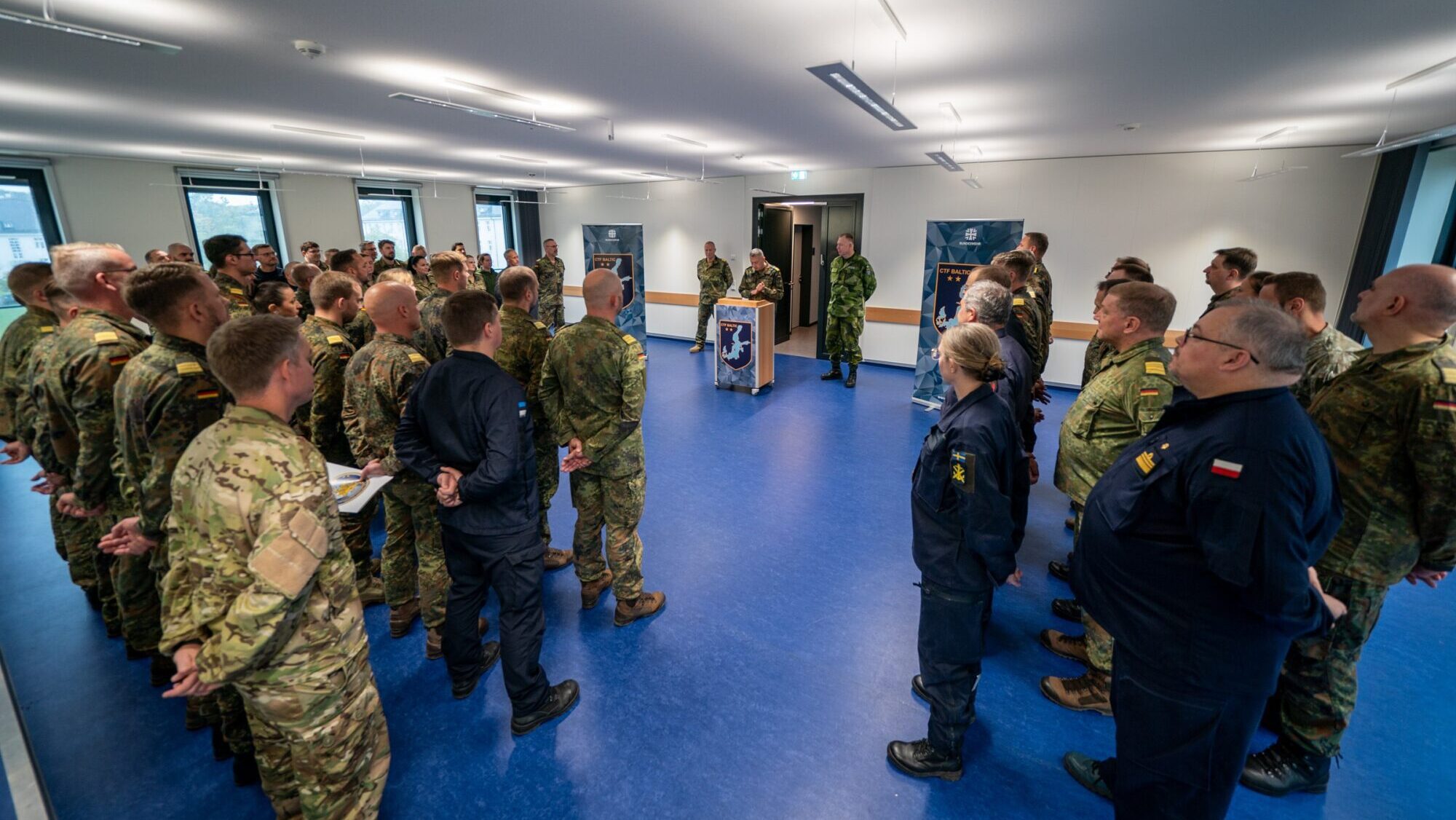
Foreign NATO staff of the ‘CTF Baltic’ mission, headquartered at Rostock.
Photo: German Maritime Forces Staff @deumarfor on X, 1 October 2024
The Russian Foreign Ministry summoned Germany’s ambassador Alexander Graf Lambsdorff on Tuesday to question him about a new German Navy headquarters, opened the day before in Rostock, East Germany. Its very presence allegedly violates the German unification treaty of 1990, which prohibits NATO troops from ever being stationed in the eastern half of the country.
Berlin rejected all criticism, saying that despite serving as the headquarters of NATO’s Baltic Sea surveillance mission and housing several foreign NATO “liaison officers,” the facility counts as a German Navy—and not as a NATO—base, and is therefore permissible under the treaty.
According to the Russian Foreign Ministry’s press release, the ambassador was given a “strong protest” against the move, and was warned of “extremely negative consequences” as Russia’s “appropriate response.” The ministry stated:
Washington, Brussels, and Berlin must be aware that the expansion of NATO’s military infrastructure into the territory of the former GDR [East Germany] will have extremely negative consequences and will not be possible without an appropriate response from the Russian side.
In its argument, Russia cites the German reunification treaty of 1990—often referred to as the Two Plus Four Agreement after its signatories—which stipulates that no NATO or foreign troops, nor any NATO military base, could be ever stationed on the former East German territory.
Accordingly, the newly opened Rostock naval base is only a German but not a NATO facility—at least officially.
Russia, however, is protesting the fact that the base was explicitly established to serve as the headquarters for NATO’s “Commander Task Force Baltic” (CTF Baltic) mission, which is meant to “coordinate naval activities in the region” and “direct naval operations in times of peace, crisis, and war,” as German Defense Minister Boris Pistorius proudly announced at the inauguration.
The NATO mission will be led by a German admiral, whose 180-member Rostock staff will officially include officers from at least 11 other NATO members, including Britain, Denmark, Estonia, Finland, France, Italy, Latvia, Lithuania, the Netherlands, Poland, and Sweden.
Yesterday, #CTFBaltic‘s inauguration ceremony as #BalticSea #headquarters took place. For Germany‘s Minister of Defence #Pistorius, its multinational personnel of 13 partner nations embodies the spirit of the Alliance. #WeAreNATO
— DEU MARFOR – German Maritime Forces Staff (@deumarfor) October 22, 2024
More about this ▶️https://t.co/9miujZnCwS pic.twitter.com/WZbWxiWLnQ
According to Berlin, however, this still doesn’t count as a violation of the Two Plus Four Treaty. As Lambsdorff explained, it’s a German naval base manned by German troops who are also allowed to work in their NATO competence under the agreement.
“The allocation of German armed forces to NATO structures is expressly permitted,” and therefore, “the transformation of the German maritime command staff in Rostock into the ‘Commander Task Force Baltic’ is in line with the Two Plus Four Treaty,” the ambassador said.
As for the foreigners present, they are only “exchange and liaison officers,” he added, and are therefore not subject to the ‘no foreign troops’ rule.
Russia still believes that the establishment of the maritime command base as the NATO mission headquarters is a “direct violation of one of the basic international legal documents,” which must warrant an “appropriate response.”
